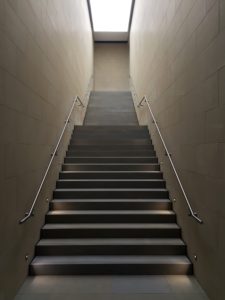 Imagine you’re walking up the stairs to your apartment and the railing on the stairs gives way, causing you to fall and break your arm. Or you’re delivering a large item to a high-rise office building and the door on the freight elevator comes crashing down, injuring your neck and spine.
Imagine you’re walking up the stairs to your apartment and the railing on the stairs gives way, causing you to fall and break your arm. Or you’re delivering a large item to a high-rise office building and the door on the freight elevator comes crashing down, injuring your neck and spine.
In each of these cases, you may be able to file a premise liability lawsuit. Here’s more about what that is and how it works.
What Is a Premise Liability Lawsuit?
Premise liability is all about a property owner’s responsibility to maintain safe conditions at that property. It can apply to almost any property owner but is most commonly used when commercial property owners or landlords fail to maintain a safe environment.
Common premise liability cases may arise from the following types of unsafe situations:
- Inadequate security or insufficient lighting
- Uneven pavement or wet floors
- Uncleared snow or icy walks
- Concealed or crumbling floors
- Improperly secured mats
- Defects in chairs or benches
- Open excavations
- Standing water
- Inadequate maintenance
If a property owner allows these types of unsafe conditions to exist, he or she may be held liable if a visitor or renter is injured.
When Does Premise Liability Apply?
You may not be sure if premise liability applies in your case. Ask yourself if the following are true:
- The defendant owns the land or premises.
- You were either an invitee or a licensee. An invitee is invited to the property by the owner for the owner’s benefit. You were at the store to buy merchandise, a patron at a restaurant, a hotel guest, a resident of an apartment complex, a friend invited to a party, or someone attending a movie or sporting event. A licensee, on the other hand, has the owner’s permission to be on the property but is there for her own purposes. You may be a landscaping employee caring for the yard, someone who has the owner’s permission to hunt on the property, a utility company employee, or a friend who stops by unannounced.
- Negligence occurred, meaning the property owner failed to live up to his/her duty to keep the premises reasonably safe.
If all these apply to your case, then you have to consider whether you can prove that the property owner was negligent. The laws vary from state to state, so it helps to have a premise liability attorney who can guide you through the process.
In general, as the injured person, you will have to prove:
- That the defendant owned or leased the property, and was negligent in caring for that property.
- That you were harmed because of that negligence.
- That you were an invitee or licensee—and not a trespasser.
Proving Your Premise Liability Case
It’s important to understand that just because you were injured on someone’s property doesn’t mean you can recover damages. Even if unsafe conditions existed, you have to prove that the property owner knew about those conditions (or should have known) and failed to take proper action to remedy the situation.
Proving ownership is typically just a matter of paperwork. Proving negligence can be more difficult, but your premise liability attorney can help. Medical records, the testimony of witnesses or healthcare professionals, pictures of the unsafe area, and any video footage will all be important pieces of evidence for your case.


